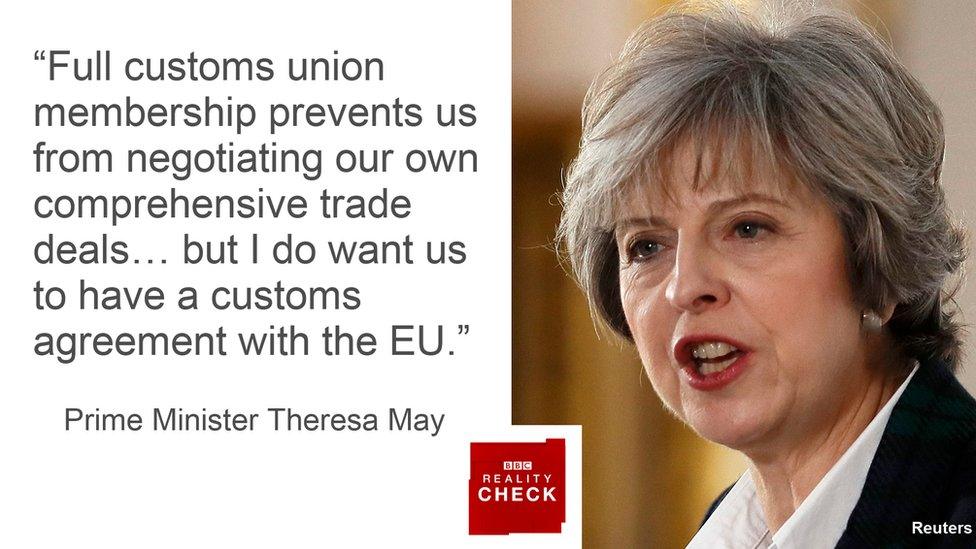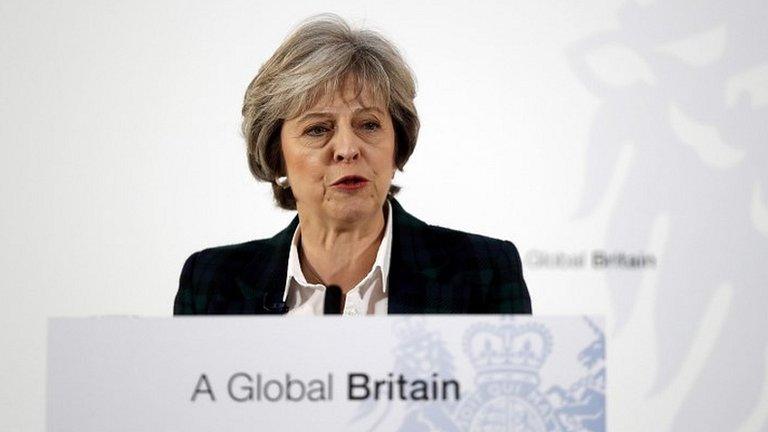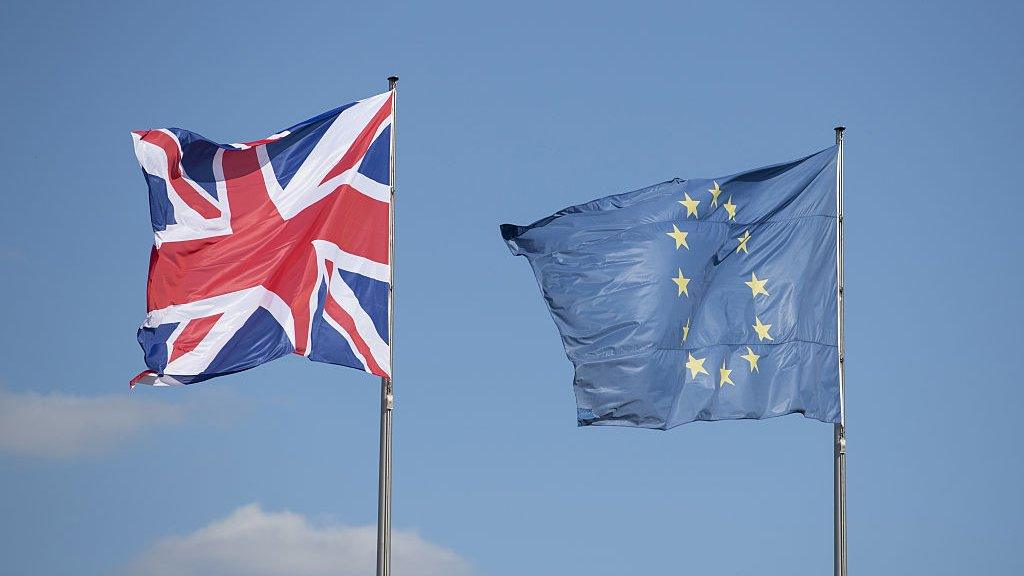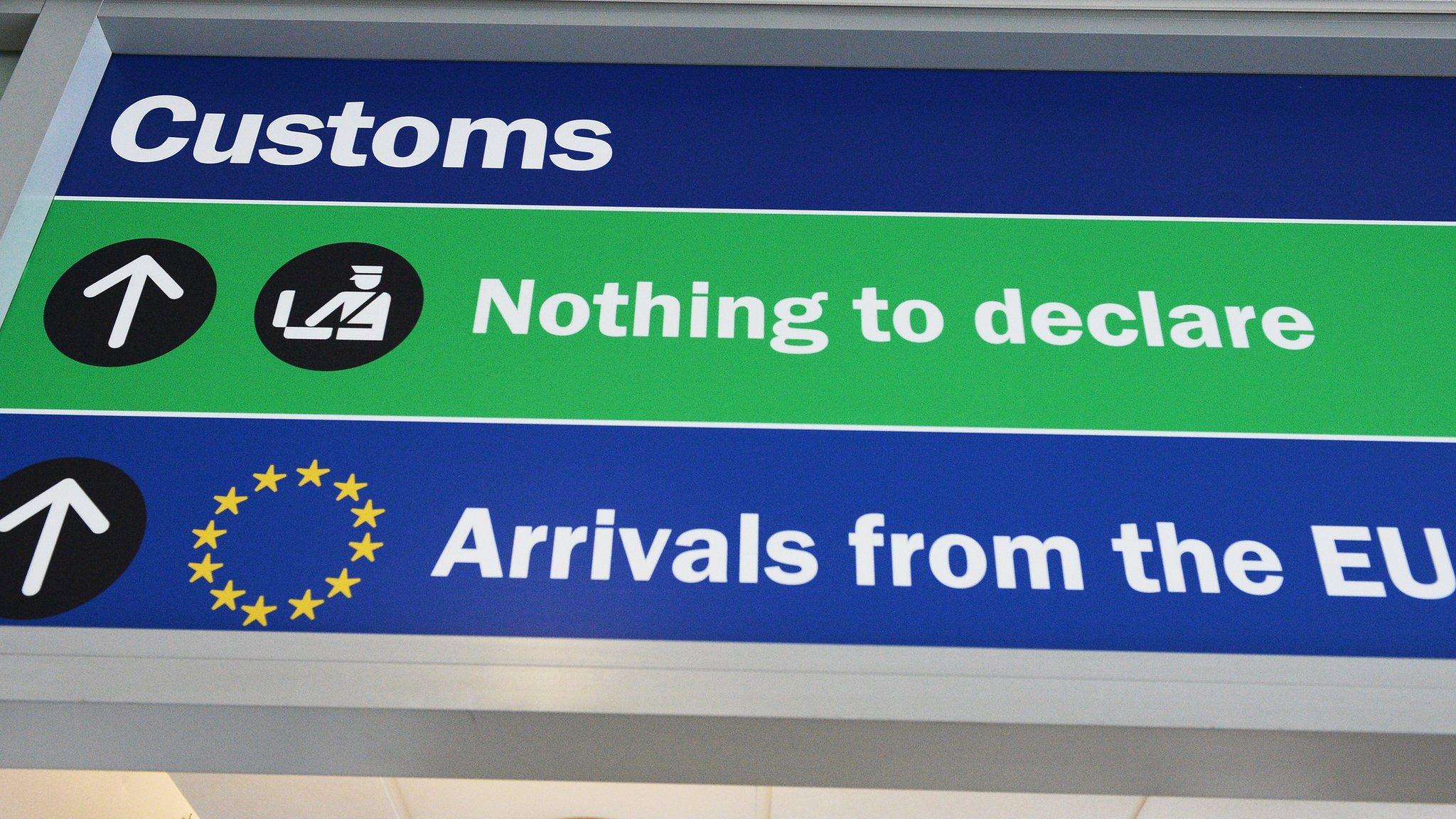Reality Check: How could customs union deal work?
- Published

The claim: The UK could negotiate an agreement that gives some of the benefits of customs union membership while still allowing other trade deals to be negotiated.
Reality Check verdict: Turkey has a deal for partial membership of the customs union so it is possible, but the terms are not favourable to Turkey. The prime minister says she does not want to replicate any existing agreements. There is a limit to what the government will be able to achieve in the negotiations if it is not prepared to impose the EU's tariffs on non-EU countries.
Prime Minister Theresa May announced on Tuesday that the UK would definitely not continue to be a full member of the customs union because that would prevent trade deals being negotiated with non-EU countries.
But she said that she did want to reach some sort of customs agreement with the EU.
"Whether that means we must reach a completely new customs agreement, become an associate member of the customs union in some way or remain a signatory to some elements of it, I hold no preconceived position," she said.
The EU customs union, external is a trade agreement between European countries that they will not impose tariffs (taxes on imports) on each other's goods and agree to impose common external tariffs on goods from other countries outside the customs union.
It means that once a product is inside the customs zone it can be transported without customs checks to any other country in the union.
Mrs May specified that there were two parts of the customs union that she could not accept.
One of them was the common external tariff, because having to impose the tariff would get in the way of free trade agreements outside the EU.
The other was the common commercial policy, which is the part of the EU treaties that sets out the principles for EU trade, including that it is the EU that sets external tariffs and negotiates trade deals, rather than individual member states.
The customs union is made up of the 28 EU members states and Monaco.
The EU also has separate customs union agreements with Turkey, external, Andorra and San Marino.
Turkey's agreement covers industrial products and processed agricultural products.
That means Turkey has to impose the common external tariff and meet EU regulations on its industrial products, but not its unprocessed agricultural ones.
So when Turkey negotiates trade agreements with other countries, it still has to impose the EU's external tariff on industrial products and processed agricultural products (unless those countries also have trade deals with the EU).
It's also a one-sided agreement, with non-EU countries that have free trade agreements with the EU automatically getting access to Turkish markets although Turkey does not get access to theirs.
And it means that on the products covered by the agreement, Turkey must keep to EU regulations.
Clearly the EU regulations would not currently be a problem for UK companies, which already follow them, but a Turkey-style deal would mean being bound by future changes to the regulations without having any say in them.
The question is whether the UK, which has stressed it does not want to replicate any existing agreements, could negotiate a deal with the EU that would allow tariff-free access for some industries to the customs union without getting in the way of the UK's trade agreements with other countries.
Theresa May said she wanted the UK's trade with the EU to be "as frictionless as possible", without specifying what benefits she would like to keep.
But there is a limit to what the UK can secure in the negotiations without agreeing to the EU's tariffs on non-EU countries, because that would mean that other countries could get a back-door, tariff-free route into the EU.



- Published17 January 2017

- Published17 January 2017

- Published28 July 2016
